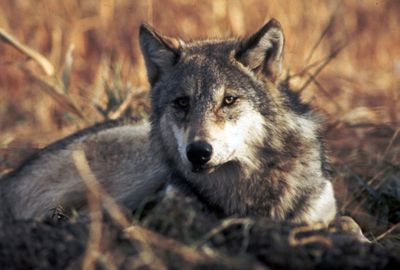Washington wolves protected

The recently announced removal of the gray wolf from federal “endangered” status included wolves found in the eastern two-thirds of Washington. However, Washington still lists the wolf as endangered.
Therefore, it’s still illegal for the public to kill, harm or harass wolves in Washington, said Madonna Luers, department spokeswoman in Spokane.
“Penalties range up to Class C felonies,” she said.
Wolves preying on livestock still must be reported to the Washington Fish and Wildlife Department and handled by state or federal officials.
Meantime, a panel of 17 citizens from across the state helped agency staff prepare a draft Wolf Conservation and Management Plan posted on the agency Web site in August and released for scientific peer review.
The draft plan recommends reclassifying wolves from state endangered to state threatened status when six successful breeding pairs are present for three consecutive years, with at least two successful breeding pairs in each of three designated recovery regions – the Northern Cascades, Eastern Washington as well as the Southern Cascades and northwest coast.
The management plan is expected to go into effect this year.
Wolves have been documented in Washington, primarily in the north central area and northeastern corner, plus regular sightings in the Blue Mountains.
A breeding pack was documented in Okanogan County in 2008, the first fully documented breeding by a wolf pack in Washington since the 1930s. At least one or two more breeding packs are suspected in the state.
No reintroductions have occurred in the state and none is planned, Luers said.
Historically, wolves were found throughout most of the state. In 2007, a calf in Stevens County was the first documented livestock killed by wolves in Washington since the predators were extirpated from the state through bounty-hunting, poisoning and trapping in the 1930s.